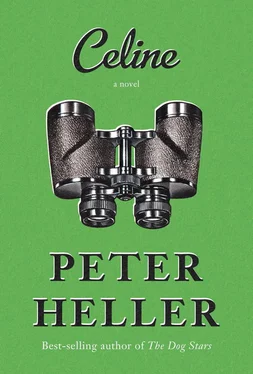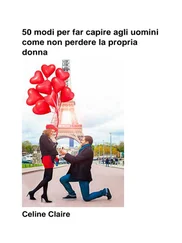Celine and Pete walked slowly back to the Yellowstone Lodge. The pace belied their excitement. For the first time in their hunt they both felt that they were properly on the scent. That within a very short time they might have their man. If he lived, that is. If they did.
How many ice mountains are there? The one he had spoken and sang of often to Gabriela when she was small was “up by Canada, in the borderlands.” Poetic but probably accurate. How many ice mountains by the Canadian border. Well. Glacier National Park was a good place to start. Wherever it was would have to be glaciated, because Lamont told Gabriela in the fairy tale that the Ice Mountain was ice even in the hottest summer. So where were there glaciers? In the park. That made it easy. But. If there really was a cabin where he longed to raise his family, then it could not be on public land, especially not in a national park. On Forest Service land maybe, if it was grandfathered in.
Suddenly they were not tired, not anymore. They were both wide awake. Pete fetched the laptop from the truck. He set it up on the desk–slash–TV stand and pulled out the one chair for Celine. Who had started up her portable oxygen condenser and was letting the flow cool her sinuses while she sat on the bed and cleaned her Glock. She had a superstitious belief that the extra oxygen would empower her brain. O 2IQ. Pete watched for a minute, surmising his own surmises, and said, “I don’t think that would do much good. For this kind of bear.”
She looked up and smiled. The condenser growled like a little generator. “Moral support.” She did not field strip the handgun but just ran a solvent brush through the bore. Which she’d already done since she’d last shot it. But. It calmed her.
“You think we might need those hunting vests soon?”
“Definitely,” she said.
“Shall we try to find Fernanda de Santos Muños?”
“Just a sec.” She finished cleaning the barrel, then she touched the action with two drops of military-grade gun oil and racked the slide. One of her favorite sounds in the universe. Reminded her of one thing she was really good at. Everyone needs one of those, she thought. Then she took the plastic cannula off from behind her ears and pressed the Off button on the machine.
It took Pete all of four minutes to log on and find the leading Chilean artist Fernanda Muños’s gallery in New York, to learn that she was indeed still alive, that she had had to flee the Pinochet regime, and that she now split her time between New York and Valparaiso. It was the shoulder season and so no telling where she might be. Five more minutes searching their data banks and they had her unlisted home numbers—at an apartment in SoHo and a cottage on the coast in Chile. Pete handed his phone to his wife. “I don’t see why we can’t make this call from here. For some reason I have one errant bar. Honors? New York first? It’ll be almost eleven there. Too late?”
“Maybe better if she is just dozing off.” She took the phone and dialed.
Hank drove back from Putney under reefs of black cloud heavy with snow. The walls of trees on either side were nearly leafless and bleak. He prayed the storm would hold off until he got to Hanover, but by Bellows Falls the first wind-driven squalls were flecking his windshield. He felt as clueless as he had before, even more so. Because each of his interviews had yielded more possibilities, rather than less. Not the way an investigation was supposed to work. For all he knew, the woman who smote him—by simply standing in an open door in a flour-dusted apron—could be his sister. Celine had adored Bob Mills, she had mentioned him more than once, one couldn’t rule him out. Maybe for the sake of propriety they had raised her as their niece. And the creepy artist: The ambiguous pedantic relationship with his mother was almost a cliché. A perfect setup. Yuck. But the young herdsman, the kid in the barn and milk house—Hank tingled to his image almost as if he were remembering Silas Cooper-Ellis himself, he could almost smell, across the decades, the warmth between the two of them, the gawky empathic girl and the shy and awkward boy—smell a connection the way his mother might have. But. Of course young Cooper-Ellis was dead.
It was not comforting, none of it was. Where there had been no fathers, now there were too many. Fathers upon fathers, marching on his filial landscape, and not a single one forthcoming. He got to Hanover in a full blizzard, and that night he called information in Blue Hill, Maine, and asked for Mills. He didn’t know Libby’s maiden name, and if the bread-baking woman at the Lower Farm was truly a niece, then there was a 50 percent chance that she was from Bob’s side. So Mills it was. The operator asked, “Frank or Harrieta?” On a hunch he said, “Frank” and then made the call. The voice that boomed “Hullo” might have belonged to his old teacher Bob, and he asked quickly if the man was Bob Mills’s brother, and he shot back, “Times I wish I weren’t, not often.” The same gruff chuckle, the same thick down-east accent, and Hank blurted, “Do you have a daughter? Leah?” “Only for thirty-one years. Who’s asking?” Hank had no idea what to say. In a great panic, and with almost equal relief, he hung up the phone. He could imagine the old Mainer staring at the receiver in his hand and shaking his head.
Two weeks later he drove over to Sandwich. The cemetery was on a high ridge, woods giving onto big fields, with a view across the valley to Mount Chocorua. It was pretty, as the farmer had said, and lonely, and cold under four inches of fresh powdery snow. Hank walked the headstones, some so eroded and lichen-covered that they would never again reveal their markings, others from the mid-eighteenth century still barely readable. After a few minutes he found the family Cooper-Ellis, three simple granite stones, the smallest belonging to Silas Henry. DECEMBER 5TH, 1931—JANUARY 29TH, 1951. MEN’S DOINGS ARE SMALL, GOD’S GLORY GREAT.
Nineteen years old. He died midway through Celine’s senior year. Had they stayed close? The old farmer had said that the shy boy had been in Korea two weeks. Why did it hit Hank so hard? The epitaph was as eloquent in what it left out: no “In loving memory,” no “Beloved son.” He took off his gloves and brushed the night’s snow off the top of the stone with his bare hands and then he surprised himself. It was as if grief had just touched him on the shoulder and he cried.
An hour later he stepped into the tiny post office on the tiny square and asked the postmaster if he knew any Cooper-Ellis still extant and the man shook his head. He wasn’t much older than Hank. Hank asked him who was the oldest old-timer still in town. Dottie Caulkins, must be ninety-plus. He got directions, and a mile from town, in a dark pine wood beside a black-water creek that was not yet frozen, he knocked on the door of a run-down farmhouse with an ancient and rusted log skidder parked to the side. The house had once been white and the skidder yellow, and they were both weathered now to almost the same nameless dun. She came to the door on the fifth knock. She held a bent-handled cane and did not invite him in.
“Cooper-Ellis?” she said in a strong, frayed voice. “I knew ’em all.” Nothing about the way she said it betrayed good nor bad.
“Are there any relatives still—”
“Alive?” She actually laughed. “Alive is all anybody cares about. Might be overrated.” The laugh again. It occurred to Hank that she might be crazy—with years, with watching so many things pass.
She took a tissue from a pocket on her dressing gown and dabbed the corners of her eyes. “No, they ain’t. Not any I know about. The boy died—in the war—then the parents died. Stove fire they said.”
Читать дальше













